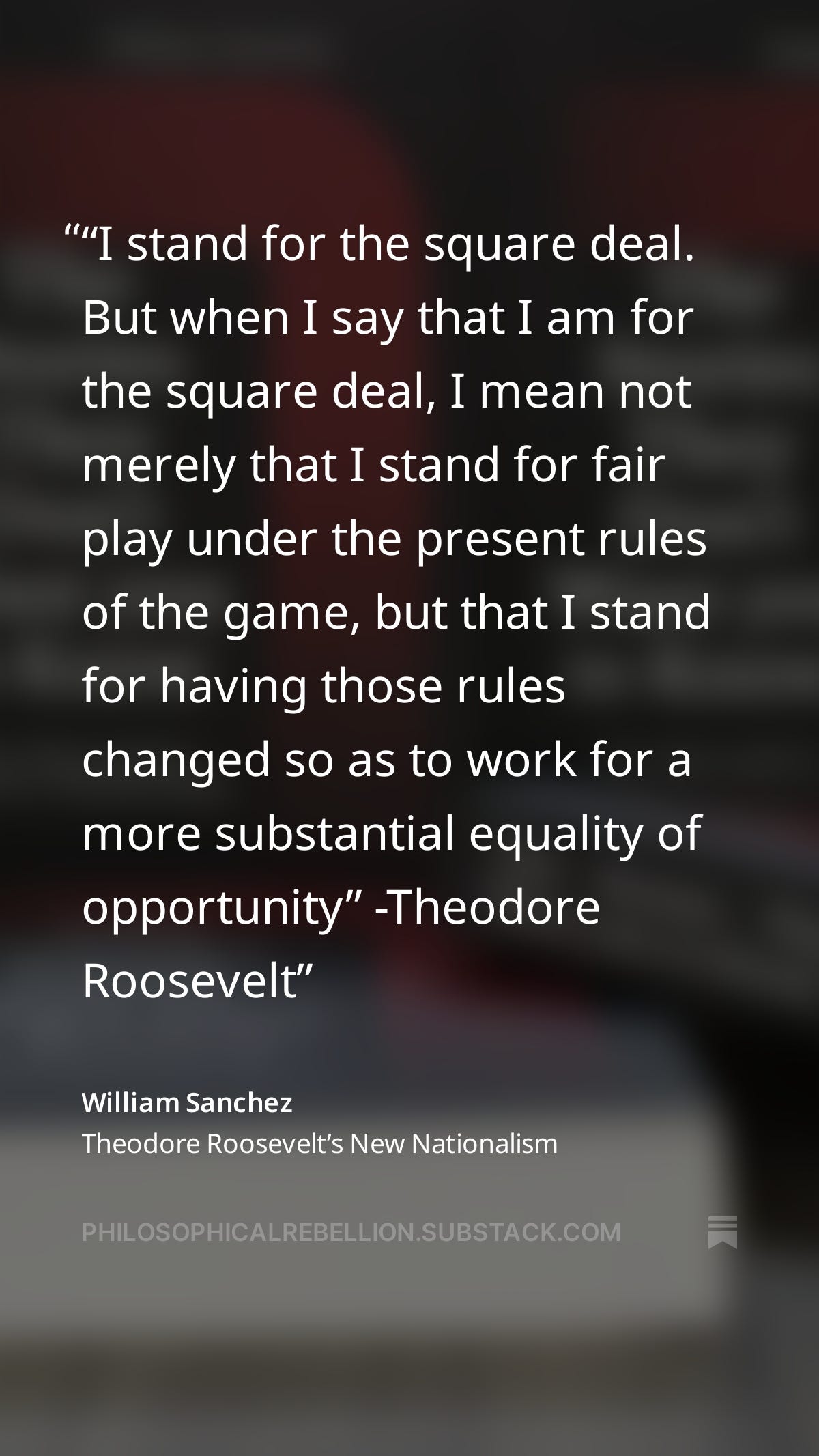Adam Smith & the Origin of Capitalism
The United States needs an Economic Renaissance. That process should begin with reevaluating what Capitalism means, where it came from, and which type of capitalists we want to be.
Adam Smith is commonly referred to as the Father of Capitalism and his teachings are incredibly important. In 1776, Adam Smith released his book “An Inquiry Into the Nature and Causes of the Wealth of Nations” in which he described what aspects of the economy worked well versus what resulted in economic problems. Capitalism began as an informed observation of how the economy operated, who the main actors were, and how governments were involved. Unfortunately, there is an important lesson from his work which has been totally disregarded during the Trickle-down era in America. The full scope of Adam Smith’s observations are ignored by the Capitalists of today because he opposed the political and economic corruption the 1% now embraces.
Smith described an eternal and ubiquitous struggle in all societies between the economic elites versus the working-class; he called elites the Masters of Mankind who stood in opposition to laborers which he called the Workmen. The masters of mankind were a parasitic class of elites who made their wealth through exploitation rather than by providing a good or service. The Masters possessed a sick sense of entitlement to everyone else’s money and acted on it by extracting all of the wealth created by laborers.
“All for ourselves, and nothing for other people, seems, in every age of the world, to have been the vile maxim of the masters of mankind.” -Adam Smith
Smith lived in a time of monarchs which worked in their own self-interest to rule their territory and subjects. Those governments frequently abused their power to extract wealth from the labor of their subjects. The Masters of Mankind would align with Monarchs to oppress the workmen and extract the wealth their labor would produce. The economies would then be maliciously manipulated by monarchs through excessive taxation, exploitative laws, and anti-competitive regulations. Monarchs would create monopolies on behalf of the masters and would brutally enforce unfair economic laws on the workmen. When the workmen would protest or resist, the Masters of Mankind would call on the monarchs to crack down and violently put down the resistance.
“The masters…never cease to call aloud for the assistance of the civil magistrate, and the rigorous execution of those laws which have been enacted with so much severity against the combinations of servants, laborers, and journeymen.”
-Adam Smith
One of the main tactics of control used by the Masters of Mankind was to keep the wages of labor so inadequate that the laborers would spend their whole lives struggling for mere subsistence. That would be combined with working conditions so gruesome that the workmen would have no time, energy, or financial freedom leftover to fight for better working conditions or higher wages.
“The masters, being fewer in number, can combine much more easily; and the law.., does not prohibit their combinations, while it prohibits those of the workmen. We have no acts of parliament against combining to lower the price of work; but many against combining to raise it.”
“We rarely hear…of the combinations of masters, though frequently of those of workmen. But whoever imagines, upon this account, that masters rarely combine, is as ignorant of the world as of the subject. Masters are always and everywhere in a sort of tacit, but constant and uniform combination, not to raise the wages of labor above their actual rate…Masters, too, sometimes enter into particular combinations to sink the wages of labor even below this rate. These are always conducted with the utmost silence and secrecy, till the moment of execution…”
-Adam Smith
The solution, according to Smith was to have autocratic governments stay out of the way of the working-class as they demanded better wages and working conditions for their labor. When the Freedom to Negotiate wages and working conditions was allowed by governments, the workmen would demand a living wage. Adam Smith recognized the necessity of a living wage as a minimum wage by saying;
“A man must always live by his work, and his wages must at least be sufficient to maintain him. They must even upon most occasions be somewhat more: otherwise it would be impossible for him to bring up a family, and the race of such workmen could not last beyond the first generation.”
-Adam Smith
But government just staying out of the way wasn’t enough. The masters of mankind would still hire private militias to violently put down worker rebellions even if the monarchs wouldn’t do it themselves. The next necessary step was to have the economic regulation of the state be guided by the interests of the workmen over the interests of the masters;
“Whenever the legislature attempts to regulate the differences between masters and their workmen, its counsellors are always the masters. When the regulation…is in favor of the workmen, it is always just and equitable; but it is…otherwise when in favor of the masters.” -Adam Smith
He described a natural imbalance between the negotiating power of the Masters and the Workmen in which the Masters always had the upper hand. Adam Smith pointed out that the Masters of Mankind use their influence over governments to enact corrupt rules and regulations to benefit their own interests at the expense of everyone else. He warned to always be skeptical of the legislative priorities and recommendations of the economic elites.
“The interest of [businessmen] is always in some respects different from, and even opposite to, that of the public... The proposal of any new law or regulation of commerce which comes from this order...ought never to be adopted, till after having been long and carefully examined...with the most suspicious attention. It comes from an order of men...who have generally an interest to deceive and even oppress the public” -Adam Smith
The issue wasn’t government regulation, but unjust regulation. Government was an important tool to establish economic rules, but those rules needed to be fair. Smith was drawing inspiration from Karl Marx who used the term Oppressors and Oppressed to describe that same economic struggle;
“The history of all hitherto existing society is the history of class struggles.
Freeman and slave, patrician and plebeian, lord and serf, guild-master and journeyman, in a word, oppressor and oppressed, stood in constant opposition to one another, carried on an uninterrupted, now hidden, now open fight, a fight that each time ended, either in a revolutionary reconstitution of society at large, or in the common ruin of the contending classes.”
-Karl Marx
Adam Smith and Karl Marx recognized the same class struggle in human society, but offered different solutions. Adam Smith pointed out that a market economy is superior to a control-economy. In a control economy competition is limited, overproduction of unnecessary goods is common with underproduction of goods people actual want, innovation is rare, and problem businesses are artificially kept alive. Instead, it was better when autocratic governments would stay out of the market to enable the free exchange of goods and services at the level of individuals, communities, businesses, and investors etc...Although Smith advocated to maximize economic freedom, he also endorsed some regulations on economic activity.
“Those exertions of the natural liberty of a few individuals, which might endanger the security of the whole society, are, and ought to be, restrained by the laws of all governments.”
-Adam Smith
By saying that all governments should restrain economic activity which could harm wider society, Smith was recognizing that government still serves an important function in the economy. Another important function was the protection of property rights so that individuals and businesses could operate without the constant threat of theft and mob violence. Additionally, government needed to invest in things like infrastructure to enable to free flow of goods and services. In exchange for the necessary functions government serves, Adam Smith argued that the citizens of every state should contribute to the public expense.
"Subjects of every state ought to contribute towards the support of the government, as nearly as possible, in proportion to their respective abilities." -Adam Smith
He said the rich should contribute at the highest rate of the whole society.
"It is not very unreasonable that the rich should contribute to the public expense, not only in proportion to their revenue, but something more than in that proportion." -Adam Smith
One of the biggest issues in modern American capitalism is wealth worship, but rarely are the masters of mankind worthy of genuine praise. The elites are often some of the most greedy, exploitative, and entitled people in human society. Often the way they earned their wealth was not through ethical means and they should not be blindly looked to for inspiration.
“This disposition to admire, and almost to worship, the rich and the powerful, and to despise, or, at least, to neglect persons of poor and mean condition…is…the great and most universal cause of the corruption of our moral sentiments.” -Adam Smith
Economic success is vital to the success of every civilization. The goal of a successful economy is not to allow the elites to hoard immense wealth and control people, it is to enable a flourishing and happy society which requires widespread distribution of wealth and a floor of the economy high enough to support a good quality of life for all full-time workers.
“No society can surely be flourishing and happy, of which the far greater part of the members are poor and miserable.” -Adam Smith
The same class struggle Adam Smith described inspired Abraham Lincoln to say this;
“It has so happened, in all ages of the world, that some have labored, and others have without labor enjoyed a large portion of the fruits. This is wrong, and should not continue. To secure to each laborer the whole product of his labor, or as nearly as possible, is a worthy object of any good government.”
–Abraham Lincoln
Lincoln’s mentality inspired Theodore Roosevelt to create a new economic ideology in his New Nationalism speech. You can read about that ideology in my post Theodore Roosevelt’s New Nationalism




